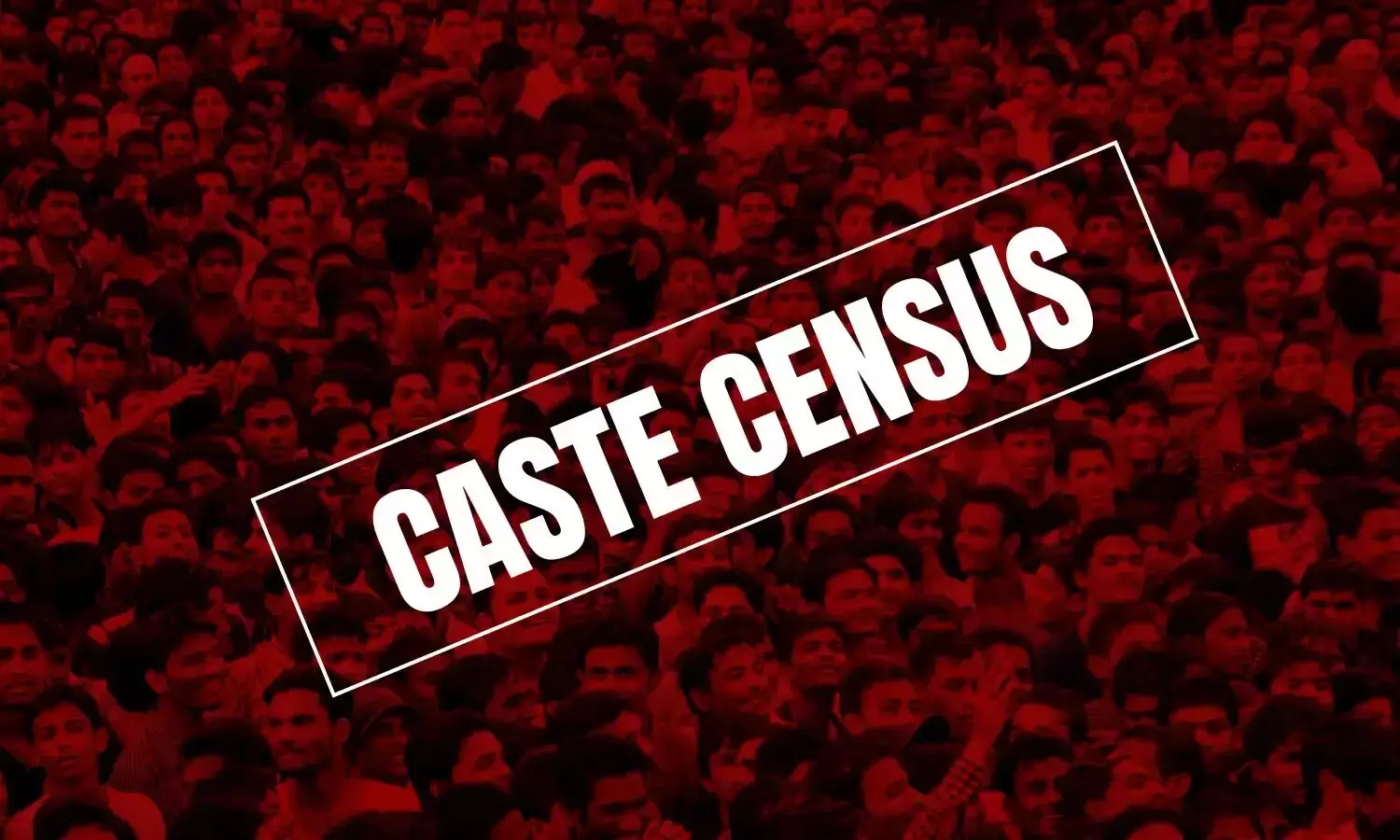Caste census: A recipe for equitable resource distribution, accurate OBC quota, transparency
By advocating for a caste census, the Congress aims to empower backward
By Irfan Aziz
Representational Image
New Delhi: On April 30, the Cabinet Committee on Political Affairs (CCPA), led by Prime Minister Narendra Modi, approved the inclusion of caste enumeration in the upcoming census. This move represents a departure from the long-held position of the Sangh Parivar, which has consistently maintained that such a census could undermine Hindu unity.
After the Bharatiya Janata Party’s victory in the 2023 state elections in Madhya Pradesh, Chhattisgarh, and Rajasthan, Prime Minister Narendra Modi indirectly addressed the Congress’s caste census campaign, remarking: “People tried to divide the country on caste lines during elections. For me, there are only four castes: women, youth, farmers, and the poor.” This stance echoed the government’s position from two years earlier, when, in a written reply to the Lok Sabha, it asserted that the Indian state had consistently refrained from collecting caste-based data beyond the Scheduled Castes.
Why the Modi government is parroting the caste census, and the reasons are obvious, the Bihar election. Caste has historically been a defining factor in the electoral politics of this state, dating back to the colonial period. This influence remains evident, as reflected in the Nitish Kumar-led government’s decision to conduct a caste-based survey in 2022. Given that Nitish Kumar’s party, Janata Dal (United), plays a pivotal role in supporting the BJP-led coalition in Parliament, it would have been politically inconsistent for them to oppose a comprehensive caste census rather than a mere survey.
Had the Modi government declined to authorize a caste census, it is likely that the Congress–Rashtriya Janata Dal alliance would have leveraged the issue strategically in the upcoming Bihar elections. Interestingly, BJP leaders—including Union Minister Ashwini Vaishnaw—have since portrayed the Modi government's endorsement of the caste census as a masterstroke. Some have even argued that no Congress-led government has conducted a caste enumeration since independence. However, this overlooks the fact that the 2011 Socio-Economic and Caste Census (SECC), initiated under the UPA government, did include caste data—though the Modi government has yet to release that data to the public.
The caste census in India refers to the systematic collection of data on the caste identities of individuals during a national population census. While India has a long history of caste-based classification, caste data has not been officially collected for all castes since the 1931 census, barring the Scheduled Castes (SCs) and Scheduled Tribes (STs). In recent years, there has been increasing demand from political parties, civil society groups, and regional governments for conducting a full caste census to better inform policy-making and affirmative action.
The primary political force championing the demand for a nationwide caste census is the Indian National Congress. The party has consistently advocated for the exercise, emphasizing that it is essential to uphold the constitutional promise of equality, justice, and inclusive development for all citizens. The Congress believes that the true essence of democracy lies in recognizing and addressing the structural inequalities that persist in society.
According to the party, a significant portion of the Indian population has been historically excluded from equitable access to government schemes, social welfare, and political representation, primarily due to the lack of accurate data on caste-based demographics. This imbalance, they argue, has allowed a relatively small and privileged section of society to disproportionately benefit from public resources and opportunities, while the majority remain marginalized.
By advocating for a caste census, the Congress aims to empower backward and underrepresented communities through evidence-based policymaking and equitable distribution of resources. The party views the caste census not merely as a statistical exercise, but as a necessary instrument to realize the constitutional vision of social justice and participatory governance.
Ultimately, the Congress holds that transparency in social demographics is key to correcting historical injustices and ensuring that every Indian citizen, regardless of caste or background, has access to the rights and entitlements guaranteed by the Constitution.
A caste census can provide updated and granular data for reservation policies, welfare programs, and targeted development efforts. It will help us know the actual demographic and socio-economic status of various caste groups, especially OBCs, which can ensure equitable distribution of resources, and currently, reservations for OBCs are based on historical estimates. Accurate data would help determine if these policies are adequate and relevant. And most importantly, Public access to detailed caste data can enhance transparency and accountability in public discourse and policymaking.
In February 2011, we formed a delegation of intellectuals, accompanied by Former CS Kerala and Former census commissioner of India Dr Vijay Unni IAS, and social activists that met the then Honourable Prime Minister Dr. Manmohan Singh and Finance Minister Pranab Mukherjee. We apprised them of the importance and value of conducting a caste census, and urged that the Government of India delink the caste enumeration from the biometric phase, and ensure the inclusion of a caste column in the proposed Household Schedule.
Disclaimer:
The writer is Irfan Aziz, All India Professional Congress, president of Secunderabad Chapter & Congress Manifesto Head from Telangana and State Convenor Media & communication TPCC.
The views and opinions expressed in the article are those of the author and do not reflect the official policy or position of NewsMeter.